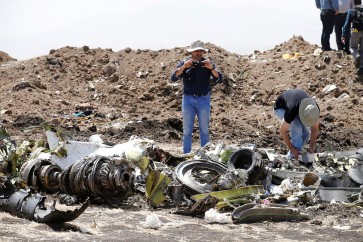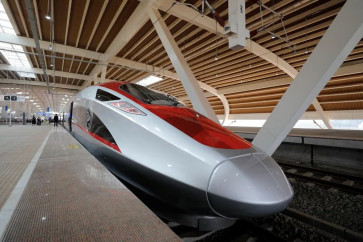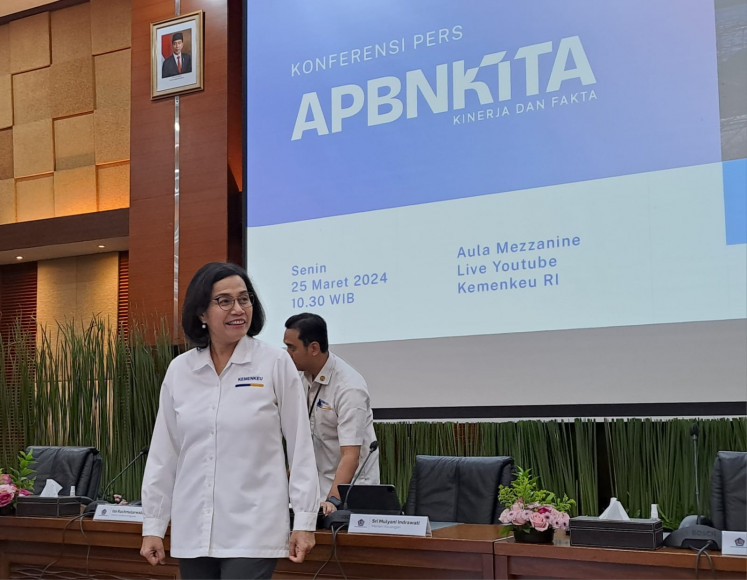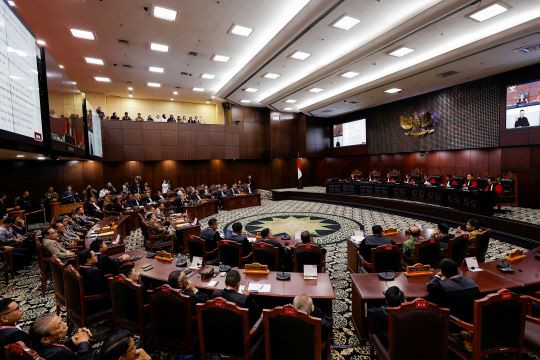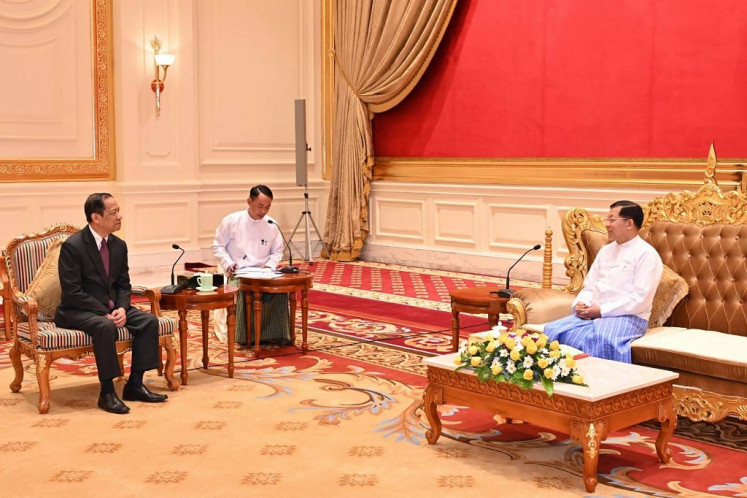Residents trained to aid medical workers
While the cities of Bima in West Nusa Tenggara and Palangkaraya in Central Kalimantan often see an influx of patients in the event of a natural disaster, local hospitals are finding it hard to provide proper medical treatment to a huge number of patients
Change Size

W
hile the cities of Bima in West Nusa Tenggara and Palangkaraya in Central Kalimantan often see an influx of patients in the event of a natural disaster, local hospitals are finding it hard to provide proper medical treatment to a huge number of patients.
In response to the problem, Islamic organization Muhammadiyah launched the Rumah Sakit Aman (Safe Hospital) program to provide training in treating patients during a crisis.
The program was made possible with the support of the Health Ministry, the National Disaster Mitigation Agency (BNPB) and the Australian government via the Department of Foreign Affairs and Trade (DFAT).
Muhammadiyah Disaster Management Center (MDMC) deputy chairman Rahmawati Husein said on Tuesday that hospitals in Bima and Palangkaraya were not prepared to receive thousands of patients, particularly during a disaster.
“Muhammadiyah made the right decision to choose hospitals in Bima and Palangkaraya for the program. As we know, Palangkaraya is at high risk for forest fires, land burning and flooding, while Bima is prone to flooding and is used for evacuations during flooding and earthquakes,” said Eny Supartini of the BNPB.
According to BNPB data, tsunamis and volcanic eruptions could also occur in Bima.
In addition, Rahmawati said people who lived near hospitals would also receive first aid knowledge and skills training, so they could provide assistance to medical workers.
In 2015, Muhammadiyah organized similar training in four cities in western and central Indonesia: Gresik, Lamongan and Malang in East Java, and Makassar in South Sulawesi.
Muhammadiyah said the government should improve disaster management since Indonesia was known as a country prone to natural disasters.
According to a 2015 UN Economic and Social Commission (ESCAP) report, Indonesia had been hit with 143 out of 1,625 disasters in the Asia-Pacific region, leaving 13,300 Indonesians dead.
Muhammadiyah added many policymakers at hospitals were not prioritizing disaster risk management.
The BNPB, along with Health Ministry, assisted Muhammadiyah to create modules on hospital-based disaster countermeasures.
“I hope local governments support disaster preparedness in their regions. We also need a bylaw for that,” Eny said.
According to Muhammadiyah, the concept of a “safe hospital” does not have a legal basis, resulting in differences in disaster action plans among hospitals.
Eny said she expected this program to inspire other hospitals to be ready for disasters.
“Natural disasters can’t be prevented, therefore hospitals must be ready at any time,” Eny said. (wnd)

